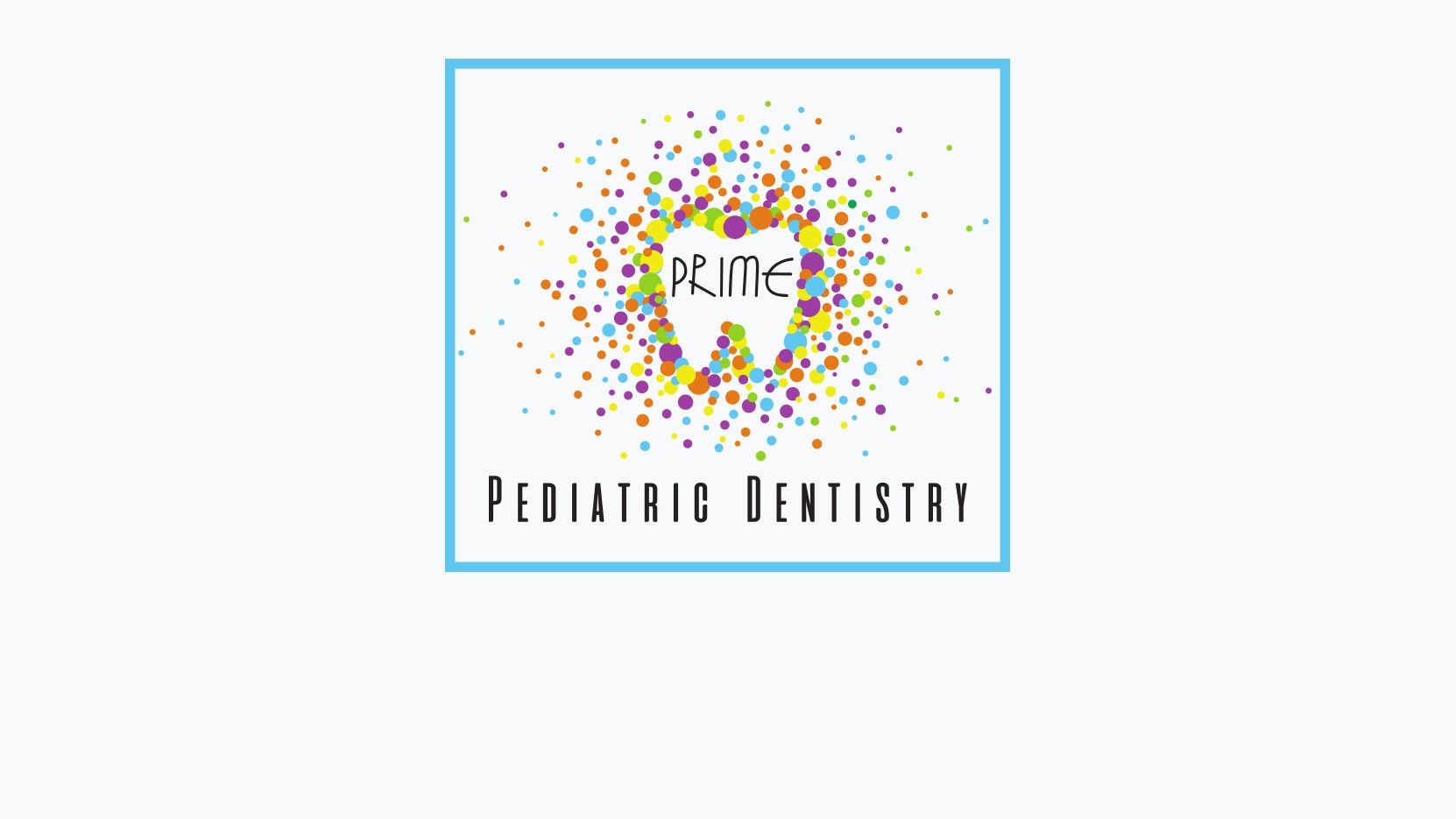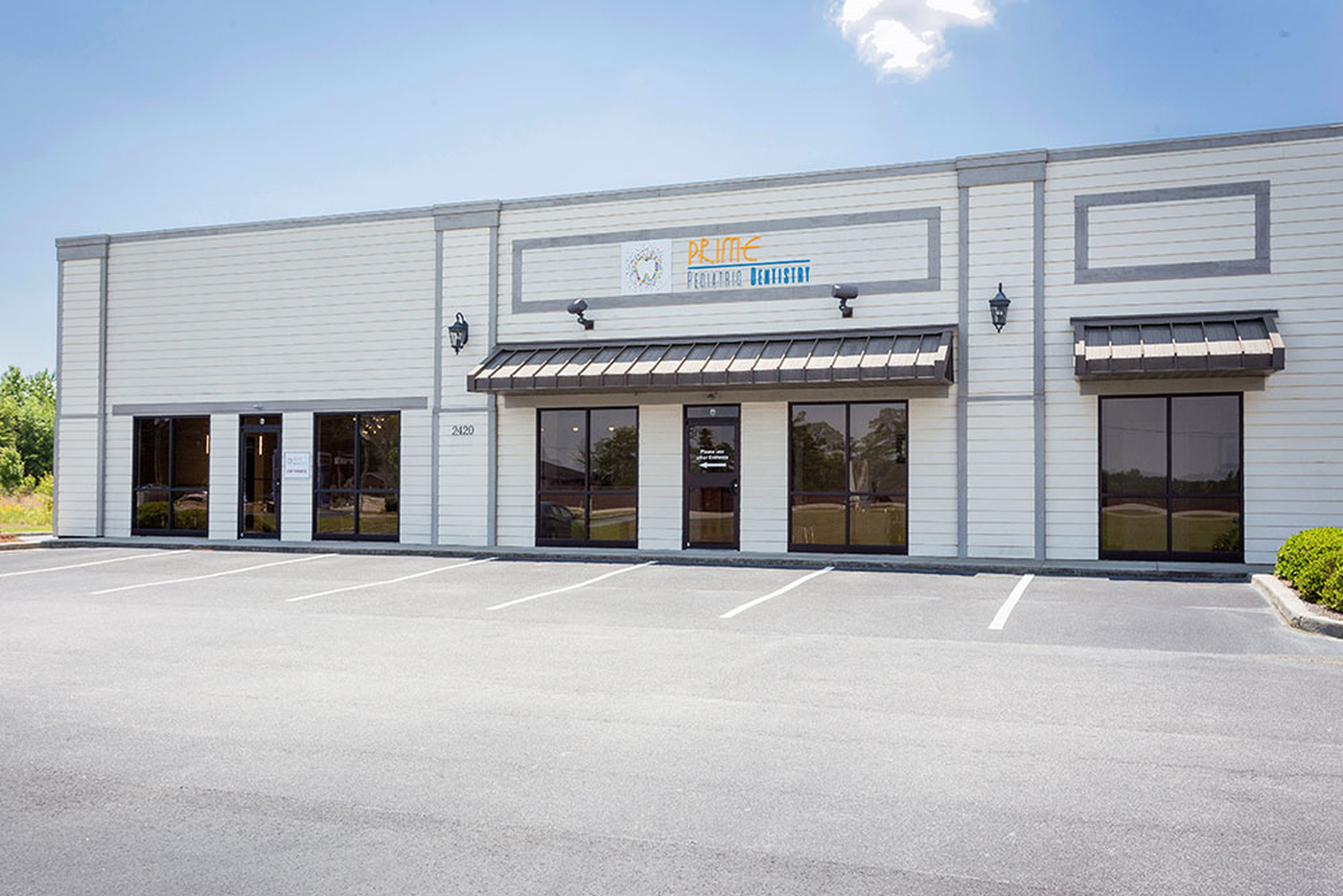Kids Dental Sedation
At Prime Pediatric Dentistry, the majority of children are capable of receiving invasive dental care requiring local anesthetic with the help of nitrous oxide (laughing gas). However, some children require some added assistance to help make them at ease during treatment. This can be due to the age of the child, substantial fear or apprehension, or extensive treatment needs.
A helpful behavior management tool to deal with these situations is Oral Conscious Sedation (OCS). This method involves the patient drinking our special “Juice” once they arrive at our office for their appointment. This “Juice” is typically a mixture of 2 different medications. One is an antihistamine (similar to Benadryl) and is used in most mixtures. The name of this medication is Hydroxyzine. The other medication will either be Valium, Versed (similar to Valium but more common with younger children), or Demerol. These medications and their actions can be further explained by your doctor if needed. Any time that a medication is taken orally, it takes time for the medication to take effect. Our staff will wait the appropriate amount of time before bringing the patient back to begin the treatment phase of the visit.
With most visits, nitrous oxide and oxygen will also be used to help put the patient at ease. This can help to temporarily add to the sedative effect. The goal of OCS is NOT to render the child unconscious or put the patient “to sleep”. Many times the patient is awake, actively participating in the appointment and watching the movie on the screen above their chair. In some instances the patient is drowsy enough and so comfortable that they may close their eyes or even dose off for a short period of time. This is normal and most of the time the patient readily responds to instructions given to them without even opening their eyes. During the visit, the heart rate and oxygenation of patients are constantly monitored to assure their safety.
As an office, the goal of the Prime Pediatric Dentistry team is to relieve the anxiety and fear of our patients. We also desire an office experience that builds confidence and joy for our patients AND THEIR PARENTS! We believe Oral Conscious Sedation is a great tool to help achieve that goal. Please discuss any questions or concerns you may have about OCS with our staff and doctors before the appointment.
Sedation FAQ’s
IS SEDATION IN YOUR OFFICE SAFE?
Dr. Conner takes the process of oral sedation very seriously. We follow all guidelines set forth by the American Academy of Pediatric Dentistry and the State of South Carolina. Sedation in the office setting is also limited to those patients that are healthy enough to limit the risks. If there are any questions regarding the health history of your child, a consult may be sent to their treating physician to check if any limitations should be made to treatment or if oral sedation in the office is not the best course of treatment. Because of these precautions, sedation is very safe in the office setting with very predictable outcomes. However, there are always risks associated with any treatments rendered. Our office is prepared for these rare outcomes and has all of the necessary equipment and medications should the need arise.
WHAT TYPE OF SEDATION DO YOU USE?
Our in office sedation is administered orally. This means that the “Juice” is taken by mouth when your child arrives at our office. Whenever medication is given by mouth it takes time for that medicine to begin to have an effect. This is definitely true of oral sedation. After taking the medication your child will need to wait anywhere from 20-45 minutes before coming to the treatment area. This time difference is based on what medications were given and the size and age of your child. This treatment is designed to relieve anxiety and is considered a “mild” to “moderate” form of sedation. It is not designed or dosed to cause your child to be rendered unconscious. Some children do dose off or fall asleep for brief periods of time, but this is typically due to the child’s extreme comfort level and enhanced relaxation and is completely normal. During this process the heart rate and oxygenation of the patient are monitored continuously. This is only a safety precaution and should not be seen as a cause for concern on your part.
CAN I STAY WITH MY CHILD WHEN THEY ARE SEDATED?
Absolutely. We at Prime Pediatric Dentistry understand that this can be a stressful experience for not only the patient but for the parents as well. We want you to feel comfortable with the setting surrounding your child’s sedation appointment. If being in the room with them helps to achieve this, then by all means stay with them during treatment. However, if you do not desire to be present that is okay as well. We will notify you with updates during treatment as to how your child is doing. If your presence is hindering the treatment of your child, then the doctors will discuss with you your options going forward. A child being upset or confused during a sedation visit is completely normal. If you have any questions about how your child is acting during a sedation visit, please ask the staff to explain their behavior. Most times it is a behavior that is not surprising to Dr. Conner or staff and very well could be behavior we see every day!
WHAT IF MY CHILD IS STILL “WIDE AWAKE” AFTER THE PROPER TIME HAS BEEN GIVEN?
Every child will have a different response and reaction to the medications. Just as adults, children have varying tolerance levels. Some children will become happy, aloof and silly. Others will become upset, confused and scared. Some children will become more alert and show no signs of sedation, and be “hyped up.” For all children, we will seat them in the operatory and administer the nitrous oxide. Once the nitrous oxide has had enough time to take effect, a final decision can be made as to their level of their sedation. If they are still uncooperative or unwilling to proceed with treatment, your options to continue will be discussed. These include aborting treatment and completing care under general anesthesia in a hospital setting or continuing with advanced behavior guidance. The decision to undergo general anesthesia depends on the emotional maturity of the child AND the severity of the child’s dental needs. A decision will be made, with your input, on how to provide the highest level of care.
IF THE SEDATION IS NOT WORKING, CAN YOU GIVE MY CHILD MORE OF THE MEDICATION?
No. The original dosage of medication is calculated based off your child’s size and weight. If the calculated dose is ineffective, more medication above the calculated dose cannot be given. This can cause “over sedation” which can have serious consequence and risks associated. Some of these include cardiovascular compromise, seizure, and loss of respiration.
WHAT ARE THE RISKS ASSOCIATED WITH SEDATION IN THE OFFICE?
There are risks associated with sedation, and the doctors and staff take this treatment very seriously. However, the risks are minimal to oral conscious sedation when the appropriate guidelines are followed. Our doctors follow all guidelines set forth by the American Academy of Pediatric Dentistry to minimize any side effects such as changes to cardiovascular function or respiratory disruptions. The office is prepared to act should an unexpected event occur, but these occurrences are quite rare.
HOW LONG WILL THE TREATMENT TAKE? WILL ALL OF THE TREATMENT BE ABLE TO BE COMPLETED IN 1 APPOINTMENT?
This is varied from one patient to the next. Appointments for sedation require more time in the office. This is due to the waiting period associated with an oral medication having to be absorbed by the body to be effective. The actual treatment time is similar. In fact, because sedated patients many times are so comfortable and compliant, the appointments can actually be shorter. It is possible that all treatment could be completed in one visit, but this depends on where work is needed and how much local anesthetic is required to complete treatment. One thing that must be taken into consideration is the patient’s numbness once they leave the office. Children are more prone to accidentally chew on a numb lip, cheek, or tongue and unintentionally cause soft tissue trauma to themselves. Therefore the doctors will limit the area treated in many instances to help avoid this post operative concern.
WILL MY CHILD BE ASLEEP DURING THE APPOINTMENT?
Oral conscious sedation prescribed at the doses used in our offices is not designed to render the patient unconscious. Many patients will “dose off” during treatment because of their level of relaxation combined with the drowsiness that comes from the medication. But in these instances the child will still respond to verbal instructions, open their eyes regularly, and maintain all breathing and airway reflexes. This type of sedation therefore is different from sedation done via an IV and is very different from general anesthesia administered in a hospital setting. IV Sedation and general anesthesia are considered “deep sedation”. General anesthesia will render a child unconscious, and cause them to lose all protective reflexes [breathing, control of heart rate, gag reflex, blink reflex, etc]
WILL MY CHILD BE NUMB DURING THE PROCEDURE?
Any procedure done other than a very small filling will almost certainly require numbing, even if your child is sedated. This is due to the minimal level of sedation achieved by oral sedation combined with the fact that sedation at this level does not have any profound effect on the nerves of the teeth or gums. Nitrous Oxide can help with an overall mild “numbing” effect, but this effect is not sufficient enough to keep your child comfortable for most dental procedures.
DID MY CHILD DO SOMETHING “WRONG” THAT MAKES SEDATION NECESSARY?
Nothing! Sedation is not designed to be given to “bad kids” or children who “don’t act right”. Sedation is designed to assist those children who desire to behave and do well, but lack the cognitive ability to cope or understand what is happening to them. This leads them to have a profound sense of fear or anxiety about a dental visit. Sedation is a great tool to help them cope with these circumstances. Sedation is also utilized to help the apprehensive patient stay comfortable for a longer period of time. This allows for more treatment to be completed in a given appointment. Because of this, sedation can also be useful for those apprehensive children with involved or extensive treatment plans to minimize the number of office visits required to complete treatment.
WHAT MAKES YOUR DOCTORS QUALIFIED TO USE SEDATION IN THE OFFICE?
Dr. Conner completed the traditional 4 years of dental school along with 2 years of Post-Graduate training through a Pediatric Dentistry Residency. While training, the doctors received extensive education and experience in sedating patients. Also, doctors had to rotate through the anesthesia department, emergency room, and inpatient pediatric internal medicine all in a hospital setting. The doctors follow the guidelines set forth by both the American Academy of Pediatric Dentistry and the State of South Carolina Board of Dentistry. Dr. Conner is also a diplomate of the American Board of Pediatric Dentistry. This means that his credentials have been verified, and has successfully completed voluntary oral and written examinations making him a Board Certified Pediatric Dentist.
HOW LONG DOES IT TAKE FOR THE SEDATION TO WEAR OFF? WHEN CAN MY CHILD RETURN TO SCHOOL / DAY CARE?
The answer depends on what medications your child received at their sedation appointment. Certain medicines have a longer effect than others. The effects of some sedation medications may begin to wear off not long after leaving the office. Others may last a few hours after treatment has been completed. Because of the variability of this time period, we ask that your child not return to school or daycare the day that they are sedated. However, most children are fully recovered by the late afternoon and can easily return to school or daycare the day after treatment.
DOES SEDATION HAVE AN EXTRA FEE? DOES MY INSURANCE COVER IT?
Like with nitrous oxide (laughing gas) administration, while some insurance plans do provide coverage for sedation, most do not. Sedation does have a fee and our office can help you know whether this cost will be covered in any capacity by your insurance company or if it will be your responsibility.
SHOULD I GIVE MY CHILD HIS/HER REGULAR MEDICATIONS FOR ADHD/ALLERGIES, ETC.?
It is generally recommended that your child take his/her medications with a sip of water on the day of sedation. Our office will inform you of any changes that may be recommended by your child’s physician.
HOW LONG WILL MY CHILD BE UNABLE TO RESUME NORMAL ACTIVITIES?
We do recommend that your child “take it easy” for the remainder of the day they receive oral sedation. While many children may feel back to normal a few hours after treatment, because of the way medications are removed from the body there may still be periods where your child is somewhat uneasy on their feet. It is therefore required that arrangements are made for your child to return home after treatment. They should NOT attend school or daycare after sedation treatment.
We want all parents and caregivers to feel comfortable allowing us to care for their children. We take this responsibility seriously. If you have any additional questions that were not answered, feel free to contact our office.




